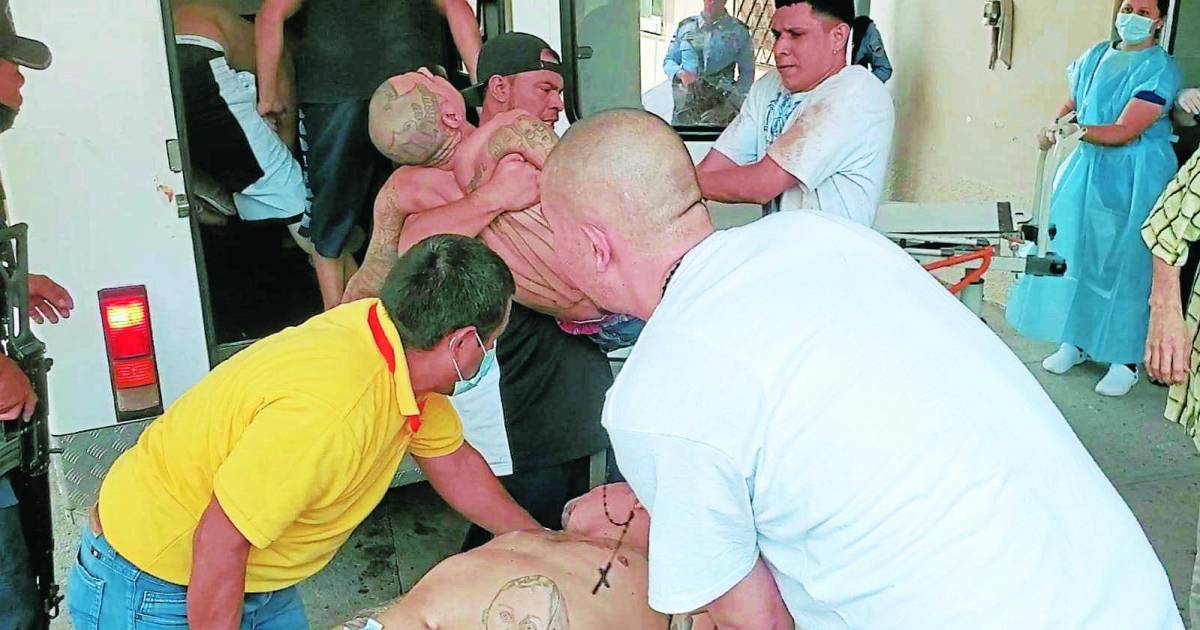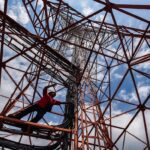Global Courant 2023-05-23 11:22:24
SAN PEDRO SULA
The announced intervention of the Honduran prisons walks slowly. Although the ten points that encompass the process have already been established, which ranges from maintaining 24-hour surveillance with technology to separating criminal structures who are in the same prisons, most are pending execution.
There is currently an audit board chaired by Dr. Julissa Villanueva, with Sandra Rodríguez and lawyer Mario Chinchilla as deputy commissioners.
Fulfilled and unfulfilled points
> 1. Real disarmament, through permanent electronic and records, in 100 percent of the facilities. From this point they have only carried out one large operation in La Tolva, where they seized about a thousand projectiles, a pistol and a revolver with ammunition, cell phones, small bags of marijuana, four ski masks and chargers. From the first days of April, simultaneous shootings began to be recorded in the prisons of La Tolva, El Pozo and Siria. Inside the premises, the members of the gangs and maras have large-caliber rifles in their possession that have not been confiscated. > 2. Total blocking of the telephone signal for detainees and authorized intervention of official lines to record internal and external communications. This point has not been met because blocking equipment or barriers have not been installed in the prisons from where the inmates make extortive calls and send messages. Prisoners continue to use cell phones to communicate with members of their criminal structures who are outside prisons and order them to commit crimes, as well as extortion. The inmates themselves launch the threats via cell phone. > 3. Removal and purge of prison staff and police officers in all prisons beginning with an immediate professional and exhaustive evaluation of the prison directors, starting in Támara, La Tolva, El Pozo and El Porvenir. The directors were removed, but not police officers who have spent years in prisons. Dr. Julissa Villanueva announced that some prison directors had resigned, then on April 11 she made some appointments of police officers to whom the law did not allow her to give agreements, since she had to have the approval of the PN. > 4. Emergency installation and development of technology, monitoring systems and electronic surveillance with central control 24 hours a day. The cameras in prisons have been destroyed, as in the case of El Pozo, where high-profile crimes such as that of Magdaleno Meza were recorded and leaked, but there are no videos of other cases. The Homicide and Human Rights prosecutors have requested material audiovisual for various crimes, but in the case of the murder of Plutarco Ruiz, perpetrated in prison, they said that the cameras had been destroyed in El Pozo by the inmates themselves. > 5. Transfers and relocation of inmates from the four prisons with the highest concentration, considering the seriousness of the crimes accused and the status of the process (sentenced and not sentenced), initiated in Támara, La Tolva, El Pozo and Siria. According to prison authorities, the relocation will be a process, since they will first begin with the interventions of each one of the prisons and then they will plan the transfers. They will begin at the Ilama prison known as El Pozo. > 6. Reclassify and isolate those deprived of liberty linked to organized crime, maras and gangs, drug and arms trafficking. Nothing has been done about this measure, because according to security experts, they first have to disarm the gang members. Nor have the authorities revealed whether the members of criminal structures such as the 18 gang will be in a single jail, like those of the MS. According to sources consulted, these groups already have the leadership in prisons for some time. > 7. Review the administrative files of prisoners with terminal illnesses in the pre-release process or other conditions and evaluate the legal situation for the granting of pardon in cases of minors. > 8. Evaluate and carry out tests of trust in the civil police human resource and that integrates the prisons. This measure has only increased the number of people, but they have not done the confidence tests, since they require a high budget. > 9. Increase the number of prison and police agents, provide them with communication equipment and technology, uniform and training, and review the salary adjustment. A group of prison officers graduated on May 2 and will join the work in prisons. In a statement on May 2, the authorities of the National Penitentiary Institute (INP) indicated that all employees will receive an increase of 1,200 lempiras retroactively from January 2023 and that contract personnel would have their agreement after approving tests. > 10. Create data banks for deprived of liberty to ensure the registration of their identity. For several years it is assumed that they were creating a database, but the inmates are reluctant to give their real names, as they often use it in impersonations. In prisons, until November 2022 there were 19,527 inmates, but only 2,255 had received their identity card, since they were the ones who voluntarily enrolled. The gang leaders use the names of other allies to get out of prison.
This comptroller, despite the plan, has faced impasses, because until last week they gave an agreement to the directors and senior officials of the INational Penitentiary Institute (INP).
It was even known that the commissioner of PoliceAdonay Hernández, appointed as director of the INPhe only signs legal documents as a liaison and not as his position.
Long process
For Hugo Maldonado, president of the Committee for the Defense of Human Rights of Honduras (Codeh), the problem of penal centers will not end overnight, because it is not easy and governance within them will not be restored.
“ The collusion that exists with the police has to do with the weapons that are inside the prisons. “
Hugo Maldonado, president of Codeh
“We as Codeh We have proposed that the sentenced groups be divided. Elsewhere those of the Mara Salvatrucha and in another prison the group of 18because we must carry out a restructuring of the entire prison system in the country”, he pointed out.
On the first point proposed by the authorities to achieve the disarmament of the prisoners, Maldonado said that there is collusion with certain members of the Police and some sectors of those deprived of liberty. “If it is possible to send different groups to the centers, the arms business could end.”
The representative of Codeh He stated that they will continue to do their work as overseers in the Honduran penitentiary system and are willing to collaborate with the nominating board.
He added that with the personnel changes it is very important that there be rotations in the prisons to avoid collusion, as well as the manifest friendship between the custodian and the prisoner.
It is worth mentioning that neither members of the inspector nor the authorities of the INP They have met with judges from the execution courts to see the situation of the legal processes of those deprived of liberty.
decongestion
Judge Marisa Burgos, coordinator of the Execution Court of San Pedro Sula, affirms that with the public defense a decongestion plan has been prepared in the prisons, which is aimed at the first stage for women deprived of their liberty. She recounted that since 2017, when the San Pedro Sula prison was closed, this entire population has been dispersed nationwide and this has caused a delay in criminal proceedings.
“ If they have a decongestion plan, they must do so in conjunction with the Judiciary. “
Marisa Burgos, Execution Judge
He stressed that from the Sula Valley there are at least 430 women imprisoned in the Women’s Center for Social Adaptation (Cephas) between accused and convicted.
He reported that they will visit the women’s penitentiary with a technical group made up of public defense lawyers, psychologists, advisors, and execution judges to review the cases, interview the prisoners, bring their own means of evidence, and then request any incident that warrants and apply retroactivity for those who were sentenced with the old code.
The execution court of San Pedro Sula in 2023 has released 140 prisoners of liberty and custodial measures for children have been changed to 23 minors, according to official figures.
Fact
> 800 prisoners from the Cortés area are being held in the Siria prison in Francisco Morazán, where the judges will go.
Of women confined in the penitentiary centerit is intended to have some 50 cases that could enjoy some benefit that the law allows to be released.
The judges are of the opinion that the INP it should reinforce the technical councils in penal centers such as Támara, where there are more than 7,000 private ones. They cannot respond to the means of evidence because they must also answer requests, release them, and they cannot keep up with giving answers.








